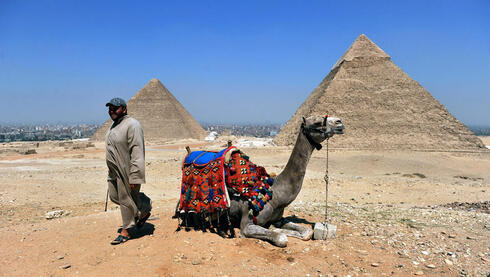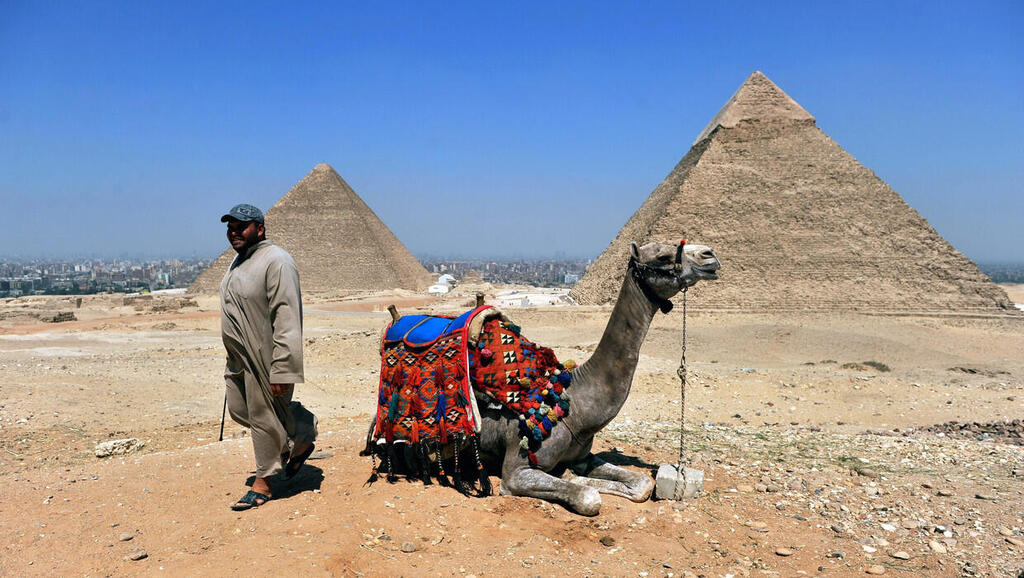
Can the UAE's $35 billion lifeline save Egypt's economy?
The Emirates seems to recognize Egypt's potential role in the Gaza Strip's economic and political reconstruction post-conflict, strengthening its sway in Egypt's economy while positioning itself for future reconstruction projects in the Strip
Egyptian Prime Minister Dr. Mostafa Madbouly announced on Friday the signing of a significant agreement with the United Arab Emirates. Under this agreement, the Gulf state will inject approximately $35 billion into the Egyptian economy. The agreement includes a $24 billion investment in the new city project in Ras al-Hekma peninsula, situated on the shores of the Mediterranean Sea, approximately 350 km northwest of Cairo and about 200 km west of the Egyptian port city of Alexandria.
According to the Egyptian Prime Minister, this mega project is part of Egypt's long-term housing preparation and will be a "new generation" city. It will feature residential buildings, free economic zones, commercial areas, tourist attractions, and associated infrastructure, including a new airport.
Ras al-Hekma is a mega project covering an area of approximately 170 million square meters. The Egyptian government asserts that it will retain 35% ownership even after the agreement, countering rumors of asset sales due to economic distress. The Egyptian government anticipates attracting foreign investments totaling $150 billion through this project.
Additionally, Egypt will receive an extra $11 billion as the United Arab Emirates announced that a previous deposit with the Egyptian Central Bank will essentially be turned into an investment.
Described as "historic" by the Egyptian regime-controlled media, the agreement has the potential to significantly alter Egypt's economic trajectory. However, some commentators, particularly those outside Egypt less sensitive to the regime, raise questions about the actual cash infusion into the Egyptian economy and its timing. Concerns also arise about Egypt's logistical capabilities to execute such a project and the allocation of the $11 billion released by the Emirates.
The mega deal with the Emirates is seen as a lifeline for the Egyptian economy, which has faced challenges exacerbated by the effects of the war in the Gaza Strip and decreased revenues from the Suez Canal due to Houthi attacks in the Red Sea. This has led to a severe shortage of foreign exchange, with the black market exchange rate soaring to about 70 Egyptian pounds against the dollar before news of the Emirati investment lowered it to approximately 55 pounds.
With inflation hovering around 30% per year and external debt reaching about $165 billion, Egypt's ability to allocate budgets for development and job creation is limited. Egypt's hope now rests on additional investments from Gulf countries and others to aid economic recovery, alongside a new agreement with the IMF for a loan estimated at $3-6 billion.
While Egypt offers promising investment opportunities, it's challenging to separate the Emirates' lifeline from the regional geopolitical landscape. The Emirates seems to recognize Egypt's potential role in the Gaza Strip's economic and political reconstruction post-conflict, strengthening its sway in Egypt's economy while positioning itself for future reconstruction projects in the Strip.














